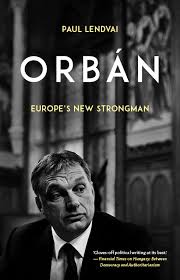 Plenty of critics have adopted “illiberal democracy” as a description not just of Hungary, but of redesigned political systems in countries as different as Poland and Turkey. Yet “illiberal democracy” fails to capture what is wrong with these regimes. It also gives leaders like Hungary’s prime minister Viktor Orban a major rhetorical advantage: He is still left with the designation “democrat,” even as it is democracy itself — and not just liberalism — that is under attack in his country, argues Jan-Werner Müller, a professor of politics at Princeton University and the author of “Contesting Democracy: Political Ideas in Twentieth-Century Europe,” among other books.
Plenty of critics have adopted “illiberal democracy” as a description not just of Hungary, but of redesigned political systems in countries as different as Poland and Turkey. Yet “illiberal democracy” fails to capture what is wrong with these regimes. It also gives leaders like Hungary’s prime minister Viktor Orban a major rhetorical advantage: He is still left with the designation “democrat,” even as it is democracy itself — and not just liberalism — that is under attack in his country, argues Jan-Werner Müller, a professor of politics at Princeton University and the author of “Contesting Democracy: Political Ideas in Twentieth-Century Europe,” among other books.
 Liberals, he and his defenders will say, simply do not like his conservative family policies, his defense of strong nation-states inside the European Union and, most of all, his complete rejection of immigration. Of course, one can legitimately disagree about these issues in a democracy. But by focusing all attention on them, Mr. Orban has remade what should be a debate about democratic institutions into yet another culture war, he writes for the New York Times:
Liberals, he and his defenders will say, simply do not like his conservative family policies, his defense of strong nation-states inside the European Union and, most of all, his complete rejection of immigration. Of course, one can legitimately disagree about these issues in a democracy. But by focusing all attention on them, Mr. Orban has remade what should be a debate about democratic institutions into yet another culture war, he writes for the New York Times:
The notion of “illiberal democracy” has also made it easier for European elites to claim that the people themselves have unfortunately turned out to be illiberal and brought these authoritarian governments on themselves. …. But the citizens who brought Mr. Orban and the current Polish government to power actually did exactly what democratic theory would have counseled them to do: In two-party systems, they threw out the one major party that had a poor record and instead voted for politicians who, in both cases, presented themselves as moderate mainstream conservatives. The latter never revealed — or won an electoral mandate for — their real agenda, of perpetuating themselves in power by attacking the institutions that underpin democracy.
 The European Commission wants to back research projects that aim to strengthen democracy and address the wave of populism, amid concerns that the rule of law and democratic checks and balances are being undermined in member states including Poland and Hungary, Science|Business reports:
The European Commission wants to back research projects that aim to strengthen democracy and address the wave of populism, amid concerns that the rule of law and democratic checks and balances are being undermined in member states including Poland and Hungary, Science|Business reports:
The leaked proposal, dating from February and subject to change before the Commission publishes its broad EU budget plans on May 2, would put Framework Programme 9 squarely into some of the touchiest political issues faced by Europe.
“European democracies and democratic governance are experiencing fundamental challenges,” says an internal EU paper, seen by Science|Business. “Trust towards democratic institutions seems to be receding whereas disenchantment with politics is increasingly articulated by anti-establishment and populist parties and a resurgent nativism,” the plan says.
“Thinkers like George Orwell and Hannah Arendt never tired of warning that the political catastrophes of the 20th century began with euphemisms and imprecise language,” adds Müller, author of “What is Populism?” “A democracy can have illiberal policies, but it cannot do without basic political liberties and protections.” RTWT







